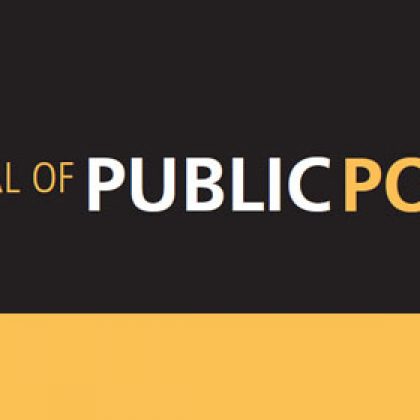What explains the politics of foreign direct investment (FDI) policy?
Since multinational enterprises (MNEs) orchestrate 80-90 percent of global trade through complex value chains, policies governing the conditions of these MNEs’ direct investment profoundly influence how countries integrate into transnational economic networks, the development trajectory of those economies, and the overall structure of the global economy. In “Foreign direct investment policy, domestic firms, and financial constraints,” I develop and test an elite-centered theory of FDI liberalization in which domestic firms’ preferences over FDI polices depends on domestic credit allocation environments. When influential domestic companies have access to subsidized credit markets, they tend to oppose inward FDI because foreign entrants tend to be more productive than local firms and push up wages. However, when banking sectors undergo reforms that restrict governments’ ability to direct cheap credit to well-connected domestic enterprise, credit constraints push domestic firms to lobby for policy liberalizations in order to access partnerships and buy-outs from better financed MNEs.
I test this theory using measures of FDI restrictiveness covering 166 countries from 1973 to 2015. My analysis shows that countries that undergo banking sector reforms – and specifically reforms that limit governments’ ability to offer subsidized business loans – are more likely to subsequently loosen restriction on foreign ownership of local enterprise. A country with a one standard deviation increase in banking reforms restricts foreign participation in roughly seven percent less industries. This finding is robust to an array of estimation techniques and multiple alternative explanations for FDI liberalization, including regime type, economic development, trade openness, economic crisis, and external pressure from international lenders or regional competitors. Additionally, causal mechanism probes show that the relationship between banking sector reforms and FDI liberalization is strongest when domestic political institutions favor business interests, particularly through informal bureaucratic channels. Industry level analysis from 2000–2015 suggests that financial constraints may condition the relationship between capital intensity and industry-level liberalizations, though the evidence here is weaker.
My findings have broad implications for the politics of economic integration and retrenchment. First, my analysis challenges typical frameworks for explaining the politics of change. International political economy (IPE) scholarship typically relies on punctuated equilibrium models to explain economic liberalization, in which actors’ preferences are fixed and changes to domestic political institutions explain changes in economic openness. My financing constraints theory provides a more flexible framework within which to examine the sources of continuity and change in IPE by considering how finance structures actors’ policy preferences. To the extent that governments return to more active industrial policies, we could well see domestic firms reverting toward more protectionist investment policy preferences. This framework of dynamic preference updating can be fruitfully applied to other dimensions of global economic and political change. Second, my focus on elite lobbying extends insights from the trade politics literature to move the scholarship on FDI policy beyond factor-proportion based explanations to more fully consider the complex calculations domestic firms face when determining whether global integration will ultimately benefit or harm them. Finally, this analysis speaks to our current moment of reconsidering the distributive effects of globalization. IPE theory has traditionally seen economic liberalization as a disruption of incumbent advantage that benefits new entrants as well as works. But, if well-connected domestic firms set the terms of investment liberalization, deepening integration can entrench rather than diminish incumbents’ power. Heterogeneous capacity to adapt to changing environmental conditions may reinforce inequalities as well-positioned actors adjust to new economic realities, while vulnerable actors are further weakened. IPE scholars should explore more fully how globalization affects market concentration within and across borders, and how these processes of consolidation affect politics.
Sarah Bauerle Danzman was awarded the 2020 David P. Baron Award for her article “Foreign direct investment policy, domestic firms, and financial constraints” (Business and Politics, Volume 22, Issue 2)






